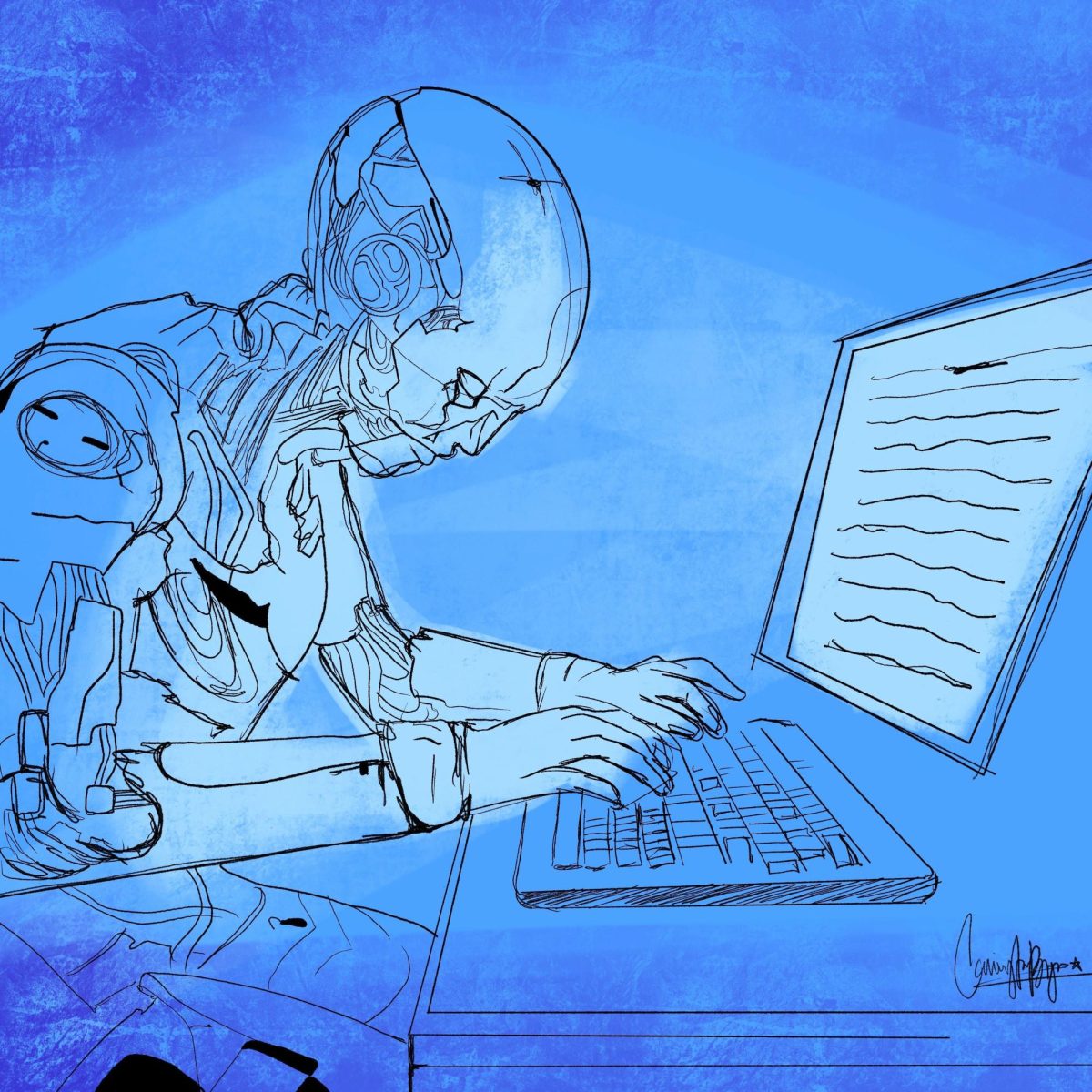Technology’s newest advancement, artificial intelligence, is creating discourse among academic communities.
Launched by San Francisco-based tech company OpenAI in November 2022, ChatGPT is an AI tool for generating writing. Since its introduction to Pitt, questions surrounding its use in the classroom have arisen. One year later, professors and students at Pitt have begun to incorporate ChatGPT into their academic life.
Pitt professor of economics Carey Treado utilizes ChatGPT, one of the more popular AI chatbots, in the classroom. Treado said she places AI into her curriculum by mandating AI usage for one assignment. Students in Treado’s Economics of Human Rights course employ ChatGPT to analyze its potential to support or suppress human rights.
Treado said she has her students focus on how they can use it and what impact its usage would have on the future.
“They are evaluating the ability of ChatGPT to provide a thoughtful analysis to an essay prompt by submitting the prompt to ChatGPT and comparing the results to their own analysis,” Treado said. “Their evaluation will include applying U.S. Department of State guidelines for responsible export of surveillance technology to a case study.”
Generative AI attempts to replicate human writing, and as it grows and is updated, it draws from more recent knowledge.
Pitt’s academic integrity code of conduct does not specifically name AI or other natural language processors. However, some syllabi list specific sections to deter AI usage in classes.
A recent survey from BestColleges puts AI usage among university students at 56%. The majority of students surveyed said AI is specifically against their code of conduct and is explicitly cheating. Business and STEM majors use AI the most, at 62% and 59% respectively.
Senior English literature and political science major Patrick Francis, who is a TA with the English department, said he thinks the time it will take AI to reach its height is enough time for academia to formulate a real plan.
“The technology is far too primitive currently to meet academic standards,” Francis said. “Especially in areas of citation. This gives educators time to formulate a proper response to automation’s gradual conquest of all human functions.”
Francis said he also believes that as AI improves, its popularity among students may not.
“Plagiarism existed before AI,” Francis said. “But most students still choose not to cheat because of the intrinsic value of authentic work, and I expect this to continue into the future.”
Caelyn Vance, a first-year biology major, said she opts out of using ChatGPT, but for a different reason.
“I don’t use AI for my homework because it’s not the type of homework I can use it for,” Vance said. “It’s more work for me to try to get AI to give me the answers I want. It’s not easy to work with when it’s more application questions.”
Carolyn Scheungrab, a first-year nutrition major, said she finds ChatGPT useful to help her study.
“If I don’t know a chemistry process or equation, it can help me summarize notes, but I don’t have it write me essays,” Scheungrab said. “ChatGPT is really unreliable at math.”
Scheungrab highlights AI’s ability to give the answer to a long chemistry problem or research history quicker than a Google search. She said it can also possibly help to meet a word count by adding filler words and expanding on what is already written.
Overall, AI’s reach into academia is still growing. The finance industry, health care and even the armed forces are feeling the effects of this new technology.
“AI can be a powerful learning tool,” Treado said. “However, like any tool, it needs to be used responsibly.”


